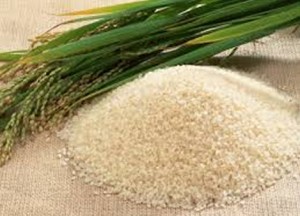Stakeholders call for enhanced investment in research for rice production
 Stakeholders in the rice value chain have appealed to the government to consider investing more in research to improve the cultivation and production of rice to reduce its import.
Stakeholders in the rice value chain have appealed to the government to consider investing more in research to improve the cultivation and production of rice to reduce its import.
They believe the country’s quest to achieve self-sufficiency in rice production was hinged on the commitments of key actors in providing adequate funds for research into the development of high yielding varieties and innovative technological equipment for processing the grains.
The stakeholders, made up of rice farmers, millers, seed growers, intermediaries, as well as consumers, made the appeal when they participated in the selection of new rice varieties from a demonstration farm at Sokwai, in the Atwima Nwabiagya South Municipality of the Ashanti Region.
The 12 new varieties have been developed and released by the Crops Research Institute (CRI) of the Council for Scientific and Industrial Research.
The selection exercise was to help identify the preferred varieties by farmers and consumers to enable the researchers breed and multiply those seeds for planting.
Mr Joseph Panada, a rice farmer at Sokwai, commended the breeders at CRI for releasing new rice varieties every year, which had been beneficial to farmers and others in the rice industry.
He said most farmers did not have the money to buy the seeds from the breeders and appealed to the Government to support the breeders to produce more at subsidised prices to promote local rice production and consumption.
“Getting the right seed, land and fertilizer is the best thing to do, with the other I mplements you are on course,” he said.
Mr Panada, who chose the “CRI-Agyapa” variety, released in 2022, said it had a good aroma and a lot of tillers, which could translate into yields.
Mr Kwadwo Asempa, a seed grower stationed at Wiawso, who selected the “CRI-AgraRice” and “CRI-Amankwatia”, said they were the best in the market.
According to him, the varieties had the potential to give higher yields compared to others.
“They tiller more, the grain quality is strong, the size of the grain good and also has some semblance of the imported rice brands”, he stated.
Mr Asempa pointed out that in appreciating the preference for local rice, the varieties selected must be able to match the imported ones.
On machinery and equipment, he called for readily available equipment to help in processing the rice to improve quality.
Messrs’ Maxwell Ayirebi and Felix Botir, both milers from Ntensere and Nobewam, chose the CRI-Agyapa Rice and said it had the potential to attract more consumers.
They said the provision of irrigation facilities must be a priority to help maximize crop yields.
Mr Kirpal Agyemang Ofosu, Assistant Breeder, CSIR-CRI, told the Ghana News Agency that as researchers, they would work hard in releasing preferred varieties to farmers and appealed to the Government to invest more into rice research to improve production.
He lauded the Korea Programme on International Agriculture for funding the research project at the CRI.
Source: GNA
